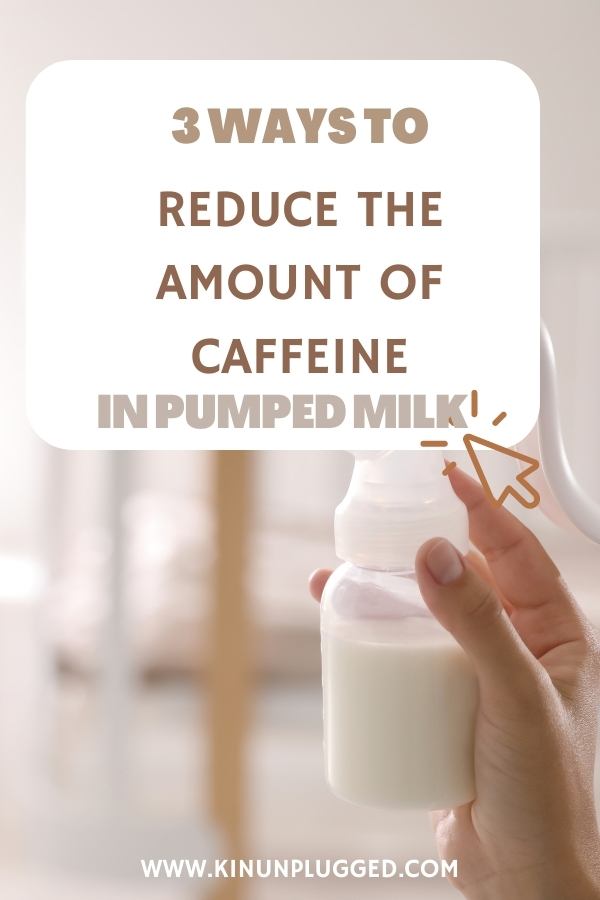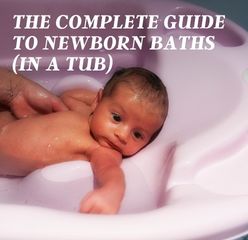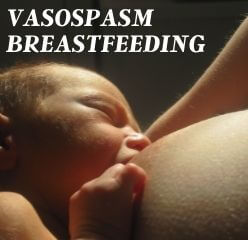Let’s be honest. A large cup (or cups) of coffee is how a lot of us moms get through most days. Guilty? You really are not alone! It’s the case for many moms of newborns too. If you’re a nursing mom running on coffee, you’re probably wondering: how long does caffeine stay in breastmilk?
In thinking about how long caffeine stays in your breastmilk, you’ll also be wondering about its effect on your baby should any of it get through your milk to them.
In this article, we will discuss the possible effects of caffeine on babies as well as the important question of how long does caffeine stay in breastmilk.
One of the effects that many mothers worry about is the dreaded colic.
Can caffeine cause colic in babies?

The relationship between caffeine consumption and colic in babies is not definitively established. While some studies have suggested a potential association, more research is needed to fully understand the connection, if any, between caffeine intake and colic.
Colic is characterized by excessive, inconsolable crying in infants, typically occurring in the first few months of life. The exact cause of colic is unknown, but it is believed to be multifactorial, involving factors such as gastrointestinal discomfort, immature digestive system, gas, and infant temperament.
Caffeine is a stimulant found in various food and beverage sources, such as coffee, tea, chocolate, and certain soft drinks. It can pass into breast milk if consumed by a breastfeeding mother or may be ingested directly by formula-fed infants if caffeine is present in their formula.
Some studies have suggested that high levels of maternal caffeine consumption may be associated with increased colic symptoms in breastfed infants. However, other studies have found no significant association between maternal caffeine intake and colic symptoms.
If you suspect that caffeine may be affecting your baby’s colic symptoms, it may be worth discussing with your healthcare provider. They can provide guidance and help determine whether caffeine consumption, either by the breastfeeding mother or directly by the infant, may be a contributing factor. In some cases, reducing or eliminating caffeine intake might be recommended to observe any changes in colic symptoms.
Remember that every baby is unique, and what may trigger or worsen colic symptoms can vary. It is essential to consult with healthcare professionals to evaluate and address your baby’s specific needs and to consider multiple factors that could contribute to colic.
How does caffeine affect baby?
If you know the effects of caffeine on your baby, you might be wondering more about whether you should drink it at all than about how long it stays in your breastmilk.
Caffeine can affect babies in several ways, depending on how it is consumed and the baby’s age and sensitivity. Here are some general effects of caffeine on infants:
- Irritability and restlessness: Babies, especially newborns, have a limited ability to metabolize caffeine. As a stimulant, caffeine can affect their central nervous system, leading to increased irritability, restlessness, and difficulty in calming down.
- Sleep disturbances: Caffeine can interfere with a baby’s sleep patterns. It may cause difficulty in falling asleep or staying asleep, resulting in shorter and disrupted sleep cycles.
- Increased heart rate and blood pressure: Caffeine can have a stimulating effect on the cardiovascular system, leading to an increased heart rate and potentially elevated blood pressure in infants.
- Gastrointestinal discomfort: Caffeine has been associated with increased gastric acid secretion and can potentially irritate the baby’s gastrointestinal system. This may manifest as increased spitting up, acid reflux, or gastrointestinal discomfort.
- Dehydration: Caffeine is a diuretic, which means it increases urine production and can contribute to fluid loss. In infants, excessive caffeine intake may potentially lead to dehydration.
- Longer elimination half-life: Newborns and young infants have a longer elimination half-life for caffeine compared to older children and adults. This means it takes longer for their bodies to clear caffeine from their system, potentially prolonging its effects.
It’s important to note that the sensitivity to caffeine can vary from one baby to another. Some babies may be more affected by even small amounts of caffeine, while others may tolerate it better. Premature babies or those with certain medical conditions may be more susceptible to the effects of caffeine.
If you are breastfeeding, it’s essential to be aware that caffeine can pass into breast milk. Therefore, consuming caffeine-containing beverages or foods may affect the baby, especially if they are sensitive to it.
If you have concerns about caffeine and its effects on your baby, it is advisable to consult with your pediatrician or healthcare provider. They can provide personalized guidance based on your baby’s specific needs and help you make informed decisions regarding caffeine consumption.
Now to the big question of “how long does caffeine stay in breastmilk?”

How long does caffeine stay in breast milk?
The duration of caffeine presence in breast milk can vary depending on several factors, including the amount of caffeine consumed, individual metabolism, and the age and health of the mother. Generally, it takes about 2 to 3 hours for caffeine levels in breast milk to peak after consumption.
After peaking, the caffeine concentration gradually decreases over time as it is metabolized and eliminated from the body. On average, it takes around 5 to 6 hours for half of the caffeine consumed to be eliminated from breast milk. This elimination half-life can vary between individuals.
It’s important to note that caffeine can accumulate in a baby’s system, especially if they have difficulty metabolizing and clearing it. Newborns and young infants, in particular, have limited ability to process caffeine, because their liver and kidneys are still developing.
To minimize the potential effects of caffeine on the baby, here are some recommendations include.
3 Ways to reduce the effects of caffeine on your baby
- Limiting caffeine intake: Moderating your consumption of caffeinated beverages, such as coffee, tea, soda, and energy drinks, can help reduce the amount of caffeine transferred to breast milk.
- Timing feedings strategically: Consuming caffeine shortly before breastfeeding can result in higher levels of caffeine in breast milk. Waiting a few hours after consuming caffeine before nursing can help decrease its concentration in breast milk.
- Monitoring baby’s sensitivity: Every baby is unique, and some may be more sensitive to caffeine than others. Observing your baby’s behavior and sleep patterns can help you determine if caffeine intake is affecting them. If you notice any changes or concerns, you may consider reducing or eliminating caffeine from your diet.
It’s important to consult with your healthcare provider or a lactation consultant for personalized advice regarding caffeine consumption while breastfeeding. They can provide guidance based on your specific circumstances and help you make informed decisions to ensure the well-being of both you and your baby.
Does caffeine stay in pumped breastmilk?
Yes, caffeine can be present in pumped breast milk. When you consume caffeine, it enters your bloodstream, and some of it can pass into breast milk. This means that if you consume caffeinated beverages or foods and then pump breast milk, the pumped milk can contain traces of caffeine.
The concentration of caffeine in pumped breast milk is generally similar to the concentration in breast milk obtained directly from breastfeeding. It takes time for the caffeine to be metabolized and eliminated from your body, so pumping breast milk shortly after consuming caffeine can result in higher levels of caffeine in the pumped milk.
To minimize the presence of caffeine in pumped breast milk, you can consider the following:

- Time your pumping session: Waiting a few hours after consuming caffeine before pumping breast milk can help decrease the concentration of caffeine in the pumped milk.
- Plan your caffeine consumption: If you know you will be pumping breast milk, you may choose to consume caffeinated beverages or foods in moderation or time it in a way that allows for more time between consumption and pumping.
- Monitor your baby’s sensitivity: Each baby is unique, and some may be more sensitive to caffeine than others. Observing your baby’s behavior and sleep patterns can help you determine if caffeine intake is affecting them. If you notice any changes or concerns, you may consider adjusting your caffeine consumption.
It’s important to note that research suggests that moderate caffeine consumption (about 200-300 mg per day) is generally considered safe for breastfeeding mothers. However, if you have concerns or specific health conditions, it’s best to consult with your healthcare provider or a lactation consultant for personalized guidance on caffeine consumption while pumping breast milk.
I hope this information was helpful for you in deciding how much and/or when to consume caffeine while breastfeeding. Once you know how long caffeine stays in breastmilk, you will find it easier to make decision about your consumption of it.
RELATED: How to increase your milk supply fast






2 Comments
I heard if you plan on drinking caffeine during breastfeeding, you should also consume it in your pregnancy. What do you think about this?
I suppose that makes sense if you consider that the guidance for pregnant women is the same as it is for breastfeeding women. However, I imagine that this would depend on the individual pregnant woman’s physical/medical situation. For example, is she experiencing certain complications with her pregnancy that might be exacerbated with even the smallest amounts of alcohol?
It’s always best for people to speak to their doctors so that they’re getting tailored advice.